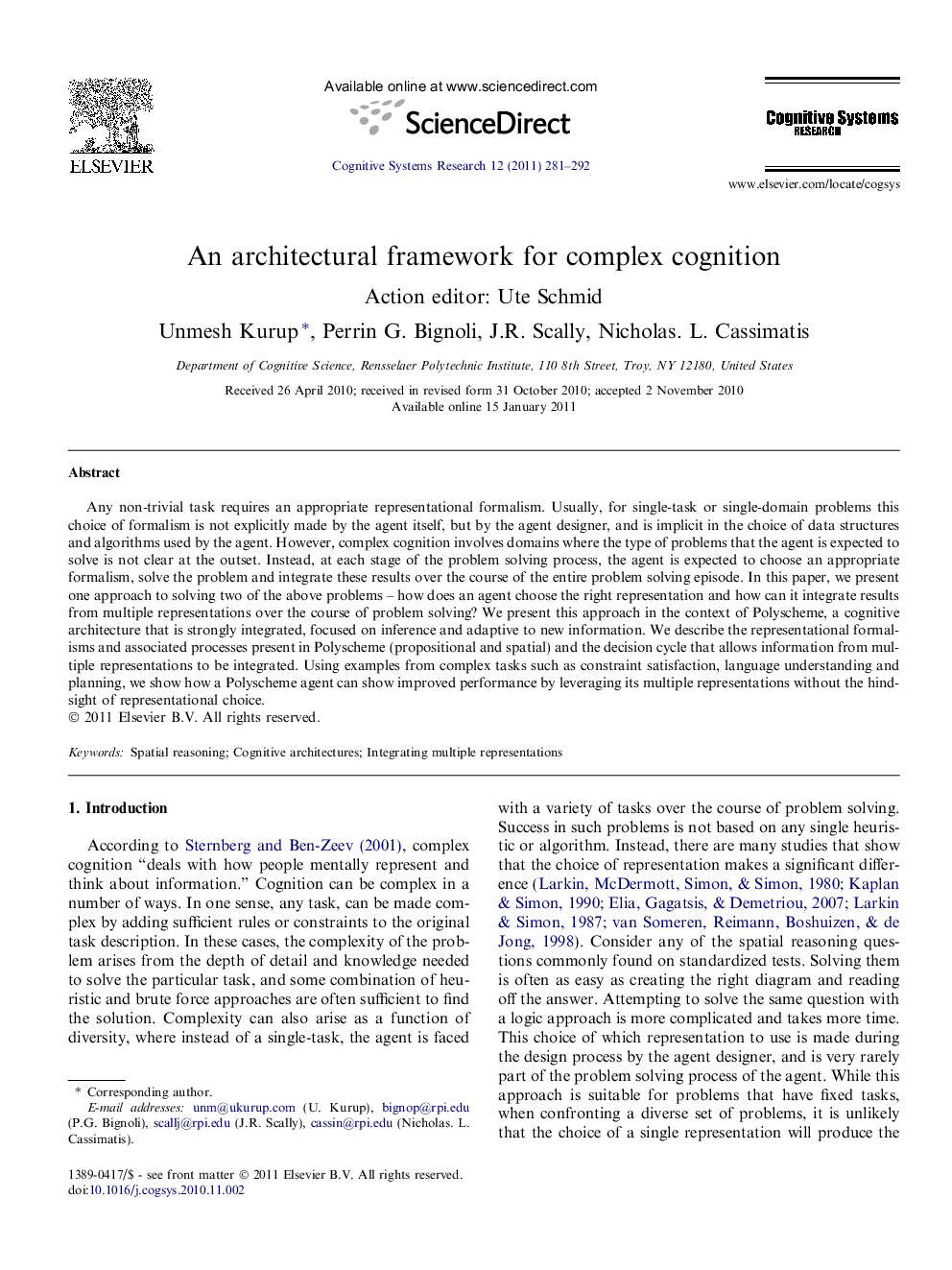| کد مقاله | کد نشریه | سال انتشار | مقاله انگلیسی | نسخه تمام متن |
|---|---|---|---|---|
| 378477 | 659158 | 2011 | 12 صفحه PDF | دانلود رایگان |

Any non-trivial task requires an appropriate representational formalism. Usually, for single-task or single-domain problems this choice of formalism is not explicitly made by the agent itself, but by the agent designer, and is implicit in the choice of data structures and algorithms used by the agent. However, complex cognition involves domains where the type of problems that the agent is expected to solve is not clear at the outset. Instead, at each stage of the problem solving process, the agent is expected to choose an appropriate formalism, solve the problem and integrate these results over the course of the entire problem solving episode. In this paper, we present one approach to solving two of the above problems – how does an agent choose the right representation and how can it integrate results from multiple representations over the course of problem solving? We present this approach in the context of Polyscheme, a cognitive architecture that is strongly integrated, focused on inference and adaptive to new information. We describe the representational formalisms and associated processes present in Polyscheme (propositional and spatial) and the decision cycle that allows information from multiple representations to be integrated. Using examples from complex tasks such as constraint satisfaction, language understanding and planning, we show how a Polyscheme agent can show improved performance by leveraging its multiple representations without the hindsight of representational choice.
Journal: Cognitive Systems Research - Volume 12, Issues 3–4, September–December 2011, Pages 281–292